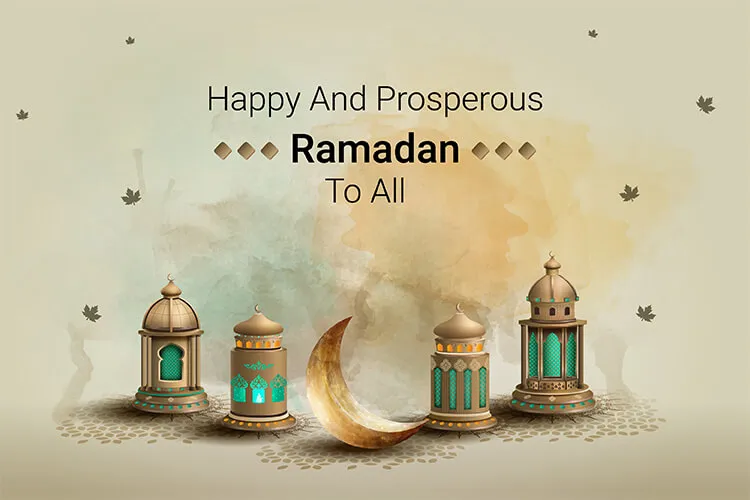Ramadan, also known as Ramzan, symbolises the start of the Islamic month. The Islamic followers consider this Holy month to be rewarding for their good deeds among all the other months of the year. Ramadan is a holy fasting month of spiritual reflection, devotion, penance, and self-improvement. The annual ceremonial practice of Ramzan is treasured as one of the ‘Five Pillars of Islam’, which stays for 29 to 30 days, from one observation of the crescent moon to the other.
Ramadan 2024 Date In India
The Islamic calendar adheres to the Lunar cycle; hence, the holy month of Ramzan will begin on Sunday, the 10th of March, 2024. This also depends on the sighting of the Moon, and the month is expected to culminate on Tuesday, the 9th of April, 2024.
History Of Ramadan
Ramadan is the 9th month of the Islamic calendar celebrated by Muslims all around the world. It is an auspicious month of prayers, fasting, contemplation, and community. It was once included in the ancient Arabs’ calendar. The name ‘Ramadan’ has been obtained from the Arabic word “Ar-ramad”, meaning blazing heat’. The history of Ramzan is associated with Prophet Muhammad who had encountered an angel in the 610 A.D. on the night of Laylat-al-Qadr. During that time, the angel made revelations from God or Allah to Prophet Muhammad. Laylat-al-Qadr signifies one of the 5 odd-numbered nights that occur during the final 10 days of Ramazan.
The revelations were accumulated in a book with 114 chapters, The Holy Quran. Muslims believe the texts in it to be the exact words of God. They also believe that Prophet Muhammad was the last chosen Prophet of God to be the messenger and teach the eminence of brotherhood and love to mankind. The Prophet was reported quoting, “When the month of Ramadan starts, the gates of Heaven are opened and the gates of Hell are closed and the Devils are chained.” The angel was trusted as a messenger of God or Allah and as per their instructions, people have been observing the month of Ramadan.
What do the heavenly stars have in store for you ahead? Know everything with your Free 2024 Horoscope!
Ramadan Fasting
All the adults are obliged to fast starting from sunrise to sunset with some exceptions like elders, terminally ill patients, diabetic patients, menstruating or pregnant women. During the month of Ramadan, people abstain from consuming food, drinking water, as well as juices, beverages, or other intakes. This also involves swallowing medicine without water. Additionally, verses are recited from the Quran during the month. Fasting is known to turn an individual’s mind from worldly desires and deeds, thereby cleansing the soul by liberating it from harmful substances.
Are you worried about some areas of life? Don’t lose hope! With our top-notch Remedy Suggestions, you can get away from such issues in life.
Ramadan Food
During the month of Ramzan, two types of meals are taken, one being ‘Suhoor’ and the other, ‘Iftar’. Suhoor is taken before sunrise, is wholesome as well as healthy enough to give sufficient energy for survival during the day, while Iftar is taken after sunset. Suhoor closes at the time of sunrise, after which the ‘Fajr’ or morning prayers start, which are then ended with Iftar. Eating Dates before the Iftar meals are considered beneficial to promote the richness of vitamins and minerals in the body. People can, at their will, have various food and water intakes during the entire night till the following Suhoor. Any person fasting is asked to drink water as much as possible at dawn in order to avoid getting thirsty during the day. People of Saudi Arabia prepare traditional desserts like Baklava or Knafeh and Luqaimat as part of Iftar.
Plan Your Year Smartly With The Help Of 2024 Detailed Yearly Report…
Ramadan Fasting Rules
Here are some of the fasting rules during Ramadan as per the Sacred law:
- Fasting should be followed with utmost caution by abstaining from permitting anything in one’s body.
- Engagement in carnal activities is prohibited.
- One needs to steer clear of immoral acts like dark intentions, backbiting, profane behaviour, and so on.
- Practising empathy for the needy and less fortunate people by acts of generosity and Zakat (compulsory charity) is favourable.
- Strict fasting can help one learn the sacrifice of food, especially for those who are foodies. This enables them to recognise the state of the poor who struggle to get even a single meal during the day.
Ramadan is not just for blessings, but also a way to understand the needs of others. Wishing you a Happy Ramadan!
Attract Good Luck With Your Personalised Horoscope On The Auspicious Day Of Ramadan! – Get Your First Consultation with 100% Cashback!
With Ganesha’s Grace,
The GaneshaSpeaks.com Team
Astrologers trained by Shri Bejan Daruwalla.

